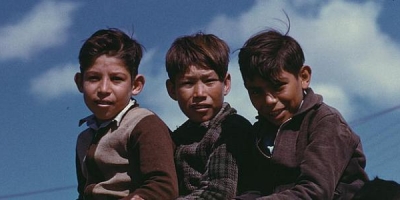At Duke, we are interested in what W. E. B. Du Bois so famously dubbed “the problem of the color line,” as well as how race and ethnicity intertwine with other collective identities such as community or nation, class or gender. Although embodied and experienced individually, racial and ethnic identities have served to shape social interactions, set the boundaries of inclusion and exclusion, and guide allocations of resources and power. They are constructed categories—ever changing and continually contested—but they are potent nonetheless.
The History Department has a strong tradition of investigating categories of social difference and their construction. As early as 1974, Duke used innovative oral history initiatives and preserved written and documentary sources to created a multiracial source base for the writing of Southern, African-American, and civil rights history. At the same time the History Department led the way in recruiting a generation of African-American graduate students whose research would revolutionize civil rights historiography. That commitment continues today with the Behind the Veil project, which has conducted 1,300 oral history interviews with African Americans from across the South, resulting in a new source base for documenting life during the Jim Crow era.
At Duke, race and ethnicity form a cross-cutting subfield that connects to students and faculty working from diverse methodological perspectives in a variety of periods and places. Coursework in racial formations, imperialism, social movements, and policy and political history all explore how race and ethnicity have been made in particular locales and historical moments, as well as how being racialized and ethnicized subjects has affected people’s lived experience and material circumstance. Duke scholars have researched the experience of enslaved peoples, orientalism and subjectivity, the global phenomenon of white supremacy, the making of race in Western Africa, and the ways in which the African American freedom struggle links with liberation movements worldwide. Impressive library holdings in the Human Rights Archive, U.S. Southern History and Culture, and the John Hope Franklin Research Center for African and African American History provide invaluable resources for pursuing a course of study.















